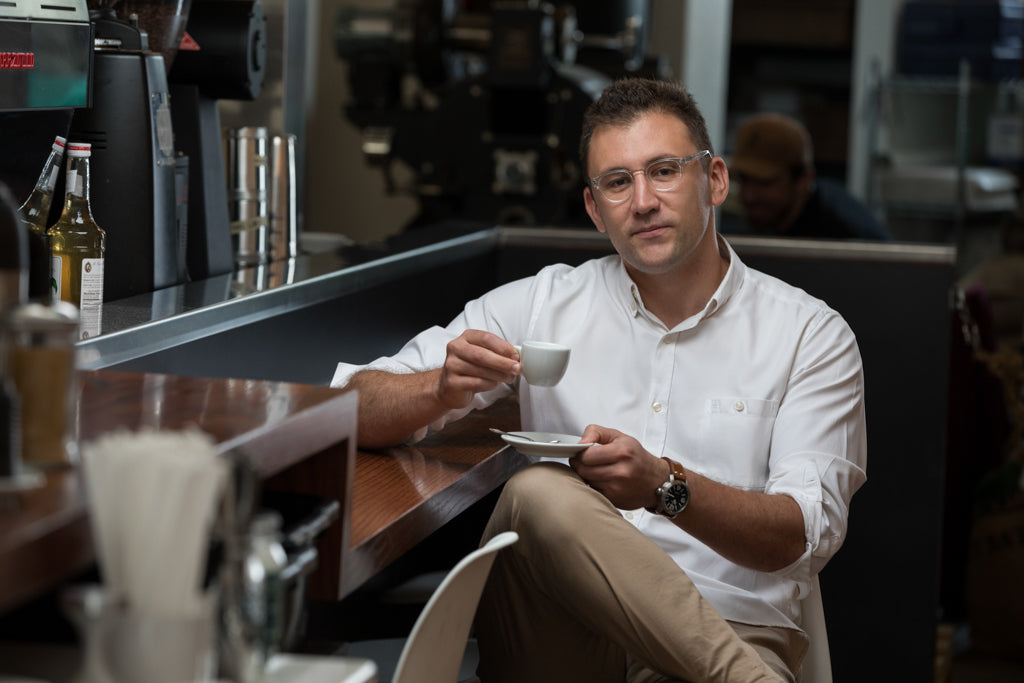This month, we spoke with coffee chemistry expert, Christopher H. Hendon. We asked about his current research, where he sees the coffee industry heading in terms of science, and more.
Hendon is currently a computational chemistry professor at the University of Oregon, but discovered his interest in the physics and chemistry of coffee before this job role.
While researching his PhD at the University of Bath, England, he met Colonna Coffee owner and three time World Barista Championship finalist (2012, 2014, 2015) Maxwell Colonna- Dashwood. “During the PhD I became interested in water chemistry and its interaction in coffee extraction”, writes Hendon in an email interview. “And since have developed a fundamental research program that explores various aspects of physics and chemistry of coffee, with a primary focus on quantifying qualities in coffee extracts.”
Continuing reading for our short interview and find more information about his coffee and non-coffee research here.
The interview has been edited for clarity.

What do you think will be the next big change or advancement in the coffee industry from your perspective as a scientist?
This is a tricky question. There are many areas that require advancement — more sustainable producing methods that may upgrade the waste sugars into value added fuel; novel extraction technologies that access higher extraction yields; novel roasting methods that suppress negative flavor generation; methods to assess qualities without sensory. These are all important and large problems in coffee, but there are many many more.
What are you most excited about in the coffee industry right now?
The increasing prevalence of research and teaching related to coffee. For example, Niny Rao at Thomas Jefferson is asking interesting questions about cold brew — Bill Ristenpart and Jean-Xavier Guinard are thinking about how brew parameters translate into sensory.

We know that you use the Orion Bean Doser and some Acaia scales in your research. What research projects are you using them for and what other research are you working on at this current time?
The Orion is one of the most valuable devices we use. Because our research relies on sampling many different coffees to ensure our approach is transferable, we have to package and store many different coffees in 100 g bags. Our lab gets through a lot of coffee, and doing out using Orion has sped up research by many hours per week. We are sincerely grateful for our access to it.
How do you see your research becoming actionable in and around changing the industry?
We are developing a device that allows assessment of coffee qualities in real time. This device will complement refractive index measurements, and advance our understanding of how brew parameters affect populations of molecules in coffee extracts. I am confident our research will be commonly used in cafes, roasteries, and homes in the next year.

How are you currently brewing coffee at home?
I have a V60 and Aeropress, and flip flop depending on how much time I have. But of course we have access to essentially all brewing methods at my coffee laboratory, and I have a soft spot for washed Ethiopian espresso.
Thank you again for the interview!
All photos taken by Dusty Whitaker, University of Oregon


Share:
Monthly Non-Profit: Hate Is A Virus
Reseller Interview: Exs Nordic